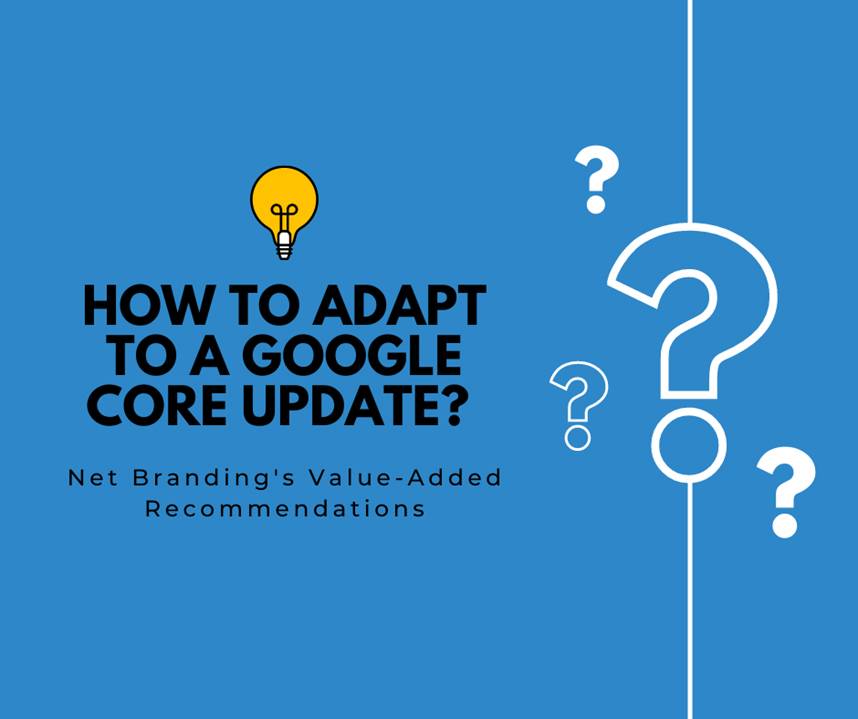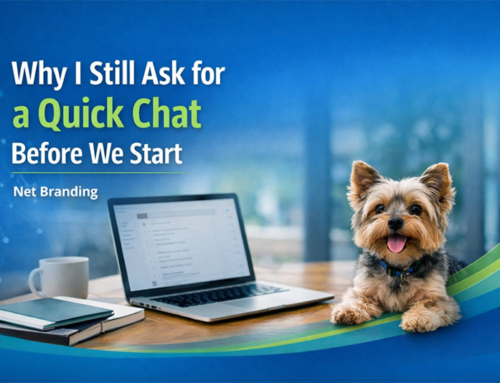
As digital marketing experts, the team at Net Branding is dedicated to helping businesses navigate the ever-changing landscape of search engine optimisation. In March 2023, Google rolled out a broad core update, which has might have impacted the rankings of many websites. In this article, “Understanding the March 2023 Google Core Update’, we will discuss the implications of this update and share experienced based valuable insights on how to manage your site’s performance during such changes, ensuring your brand remains competitive in the online marketplace.
The Google March 2023 Core Update
The March 2023 Google core update was a major change to the search engine’s ranking algorithm. Launched on the 15th of March of this year, this update took 13 days to be fully implemented.
While Google regularly updates its algorithm, core updates are considered more significant due to their potential to cause substantial shifts in search rankings. Early reports from the SEO industry suggest that the March 2023 core update was indeed impactful compared to previous core updates.
Reflecting on Past Google Core Updates: Lessons Learned and Their Lasting Impact
• If we look at the history of Google core updates, the reflection on the past offers valuable insights into the search engine’s continuous efforts to provide the most relevant and valuable search results for users (i.e. the ultimate client of Google – a great Google Search experience). By examining some of the more prominent core updates from the past years, we can better understand the importance of staying agile and adapting our digital marketing strategies to keep pace with these changes. This clearly reflects any solid management process. Learn from the past to prepare for the future.
• Panda (2011) – The Panda update of 2011 was designed to target websites with low-quality content and decrease their search visibility. This 2011 core update emphasised the importance of producing high-quality, unique, and informative content, teaching marketers the value of prioritising content that serves users’ needs. If we reflect on this update, this certainly has been a consistent theme in ensuring that the google user has a positive search experience when searching online.
• Penguin (2012) – The Penguin update aimed to penalise websites that engaged in manipulative link-building schemes or used unnatural backlinks to boost their rankings. Since 2012, there has been more comment from Google regarding backlinking and core updates related to backlinks. But let’s focus on Penguin 2012. This update reinforced the need for “ethical link-building” practices and highlighted the significance of earning high-quality, organic backlinks – note organic – from reputable sources. It is interesting that some agencies have continued to use linking of this dubious nature but I have no doubt that this will be identified at some point in time in the future.
• Hummingbird (2013 – The Hummingbird core update of 2013 focused on improving Google’s understanding of user intent and natural language queries. There are some stats relating to human search and consideration that many human search queries have never been planned for. This 2013 core update certainly emphasised the importance of creating content that effectively addressed users’ search queries and optimising websites for semantic search.
• Medic (2018) – The Medic update of 2018 targeted websites in the health and wellness niche, particularly those providing medical advice and information. This core update highlighted the importance of expertise, authority, and trustworthiness (E-A-T) in creating content, especially for YMYL (Your Money Your Life) websites. Google Advertising policies also support Google’s drive to provide credible information from relatable sources.
• BERT (2019) – The BERT update aimed to improve Google’s understanding of natural language and the context within search queries. This natural language 2019 update reinforced the need for businesses to create content that aligns with user intent and is written in a clear, natural language. Again the concept of authority, expertise, and trustworthy content.
Core updates are becoming a standard and regular occurrence in the world of Google. The frequency of which is becoming quicker and more regular.
By studying the impact of these past core updates, we can better anticipate the potential effects of future updates and adapt our digital marketing strategies accordingly. The team at Net Branding remains vigilant and proactive in monitoring industry developments, ensuring that our clients’ websites remain optimised and in line with Google’s latest guidelines.
• Responsive Websites – Our focus in the years leading to 2023 has definitely been on responsive websites and digital assets as search traffic data supports this as a high % source of search traffic. We believe this is also an important element to ranking thorough any core update.
Adapting to a Google Core Update: Net Branding’s Value-Added Recommendations
1. Don’t panic – Fluctuations in search rankings are often expected after any core update. This can be increased rankings followed by decreases followed but further fluctuations before ranking settles. We do recommend that you avoid making hasty or impulsive decisions and give your website some time to settle into the new ranking landscape.
2. Analyse data – Data is the core of most decisions when it comes to Search Rankings and optimisation. Always use analytics tools to identify which of your website pages have been affected by the recent Google update. Once you have this analysed/determine whether the affected pages have experienced a drop in traffic or conversions then, and only then prioritise these identified pages for improvements.
3. Improve relevance – Review your business website or e-commerce website to ensure that the content on your affected web pages is still relevant, informative, and up to date. We recommend that you address any issues such as outdated information, broken links, or thin content (low word count or not of real value). Focus on providing value to your audience by addressing their needs and answering their questions i.e. deliver content that is of value and of interest.
4. Enhance authority – How do you enhance the authority of your website? Net Branding recommends that you build the authority of your affected pages by creating high-quality, link-worthy relevant content. You may want to reach out to industry influencers, engage in guest blogging opportunities, and participate in relevant online communities to gain sort after and valuable backlinks. This will certainly help you increase your online presence.
5. Conduct competitor analysis – Monitoring competitors in the online space is important. So, investigate how your competitors are faring in the wake of the core update. Then identify what they’re doing well and incorporate those strategies into your own SEO and search ranking efforts.
6. Revisit technical SEO basics – Back to basics. Do ensure that your website is optimised for search engines from a technical standpoint. This includes (but is not limited to) having a responsive design, fast loading times, and a secure connection (HTTPS). Additionally, ensure that your site is easily crawlable by search engine bots. A clear site structure and a comprehensive XML sitemap are important for this crawl.
7. Publish new, high-quality content – For years we have said – content is king. There are derivatives of this now but we suggest you offset any traffic loss by creating and promoting fresh, engaging content. Fresh or updated content will not only help you regain lost ground but also attract new visitors to your website.






